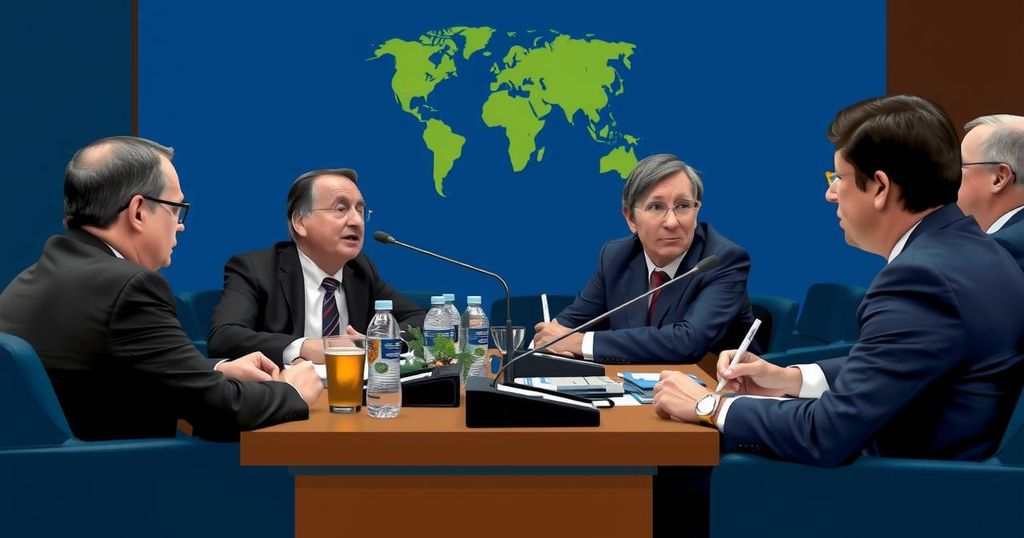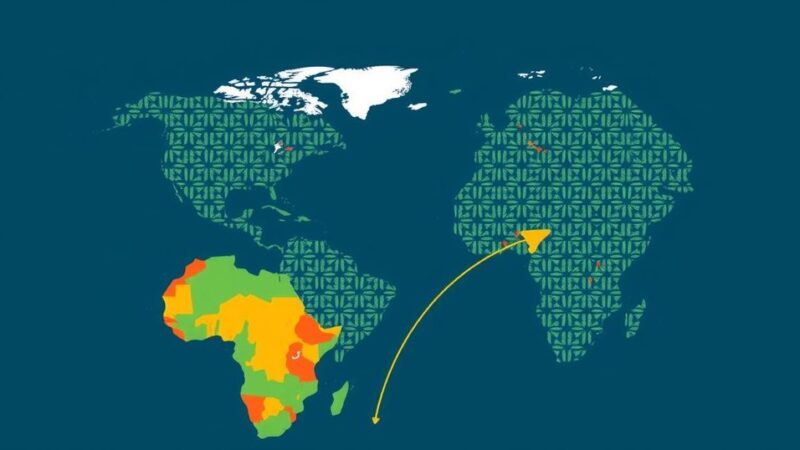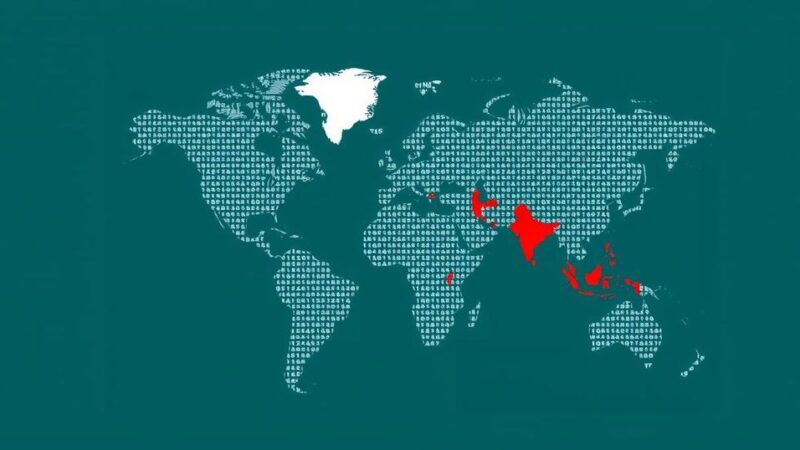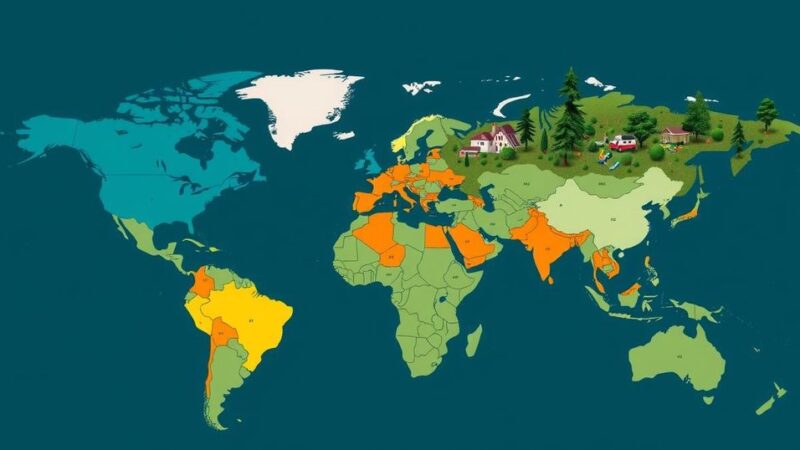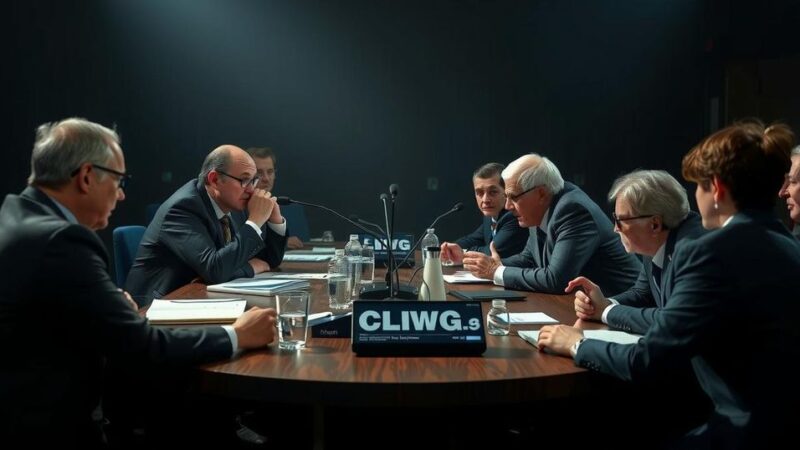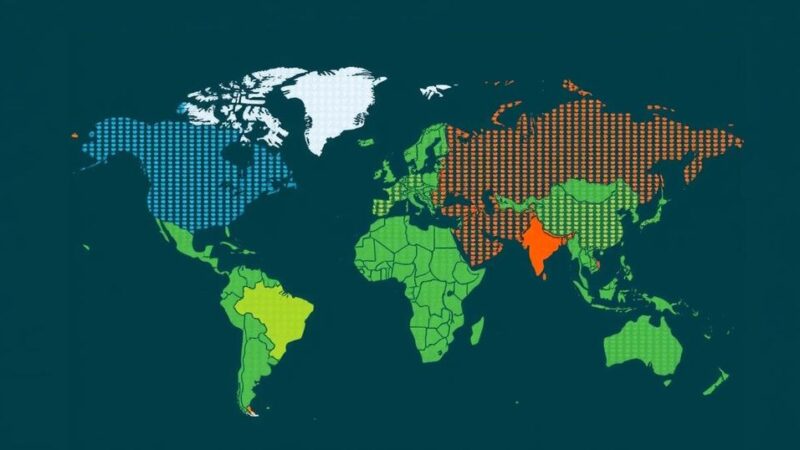The COP29 climate talks in Baku led to a contentious agreement requiring wealthy nations to provide $300 billion annually to poorer countries. While the deal was finalized after extensive negotiations, several delegates immediately denounced the figure as insufficient, highlighting tensions between developed and developing nations concerning climate financial responsibilities. Despite criticism of its organization, Azerbaijan’s role in facilitating the talks has been both applauded and questioned.
In Baku, Azerbaijan, intense negotiations culminated in a contentious agreement on climate finance, solidified early on a Sunday morning after marathon discussions. The deal, which stipulates a provision of $300 billion yearly from wealthy nations to those significantly impacted by climate change, incited outrage among several delegates immediately following its announcement. While some nations greeted the agreement with applause, others, such as representatives from Cuba, India, and Switzerland, expressed profound disappointment, asserting that the alignment had been unreasonably rushed and insufficiently inclusive.
During the negotiations, numerous delegates appeared visibly fatigued, with some arriving at the final sessions burdened by heavy luggage as they prepared for departure. Despite this, moments of camaraderie emerged, including a positive exchange between U.S. and Chinese representatives. Host nation Azerbaijan faced criticism for its handling of the event, with President Ilham Aliyev notably criticized for his initial confrontational statements regarding Western nations and fossil fuel advocacy. Ultimately, COP president Mukhtar Babayev declared the agreement adopted despite the surrounding discontent, asserting confidence in Azerbaijan’s capability to facilitate consensus amidst skepticism.
The recent climate talks held in Azerbaijan’s Olympic Stadium marked a critical moment in international climate policy discussions, reflecting the urgency of addressing mounting climate challenges. With 2024 forecasted to be one of the hottest years recorded, the negotiations became increasingly pressing as political representatives and climate activists congregated to debate financial support for more vulnerable nations. The agreement reached, aimed at channeling significant funds from wealthier nations to those adversely affected by climate change, formed the crux of a contentious discourse underscoring diverging perspectives within global diplomatic engagement on climate policy.
The culmination of the COP29 climate negotiations in Azerbaijan was marked by significant tension and disappointment among participating countries. While an agreement on climate finance was achieved, the response from various nations reflected a belief that the provisions made were inadequate in light of the urgent climate crisis. The contrasting reactions underscore a continued divide between developed and developing nations regarding climate responsibilities and resource allocation, emphasizing the complexities of international climate diplomacy.
Original Source: www.rfi.fr
